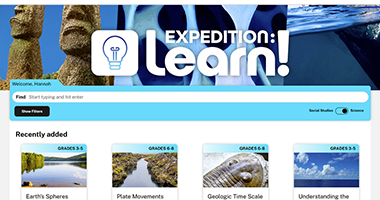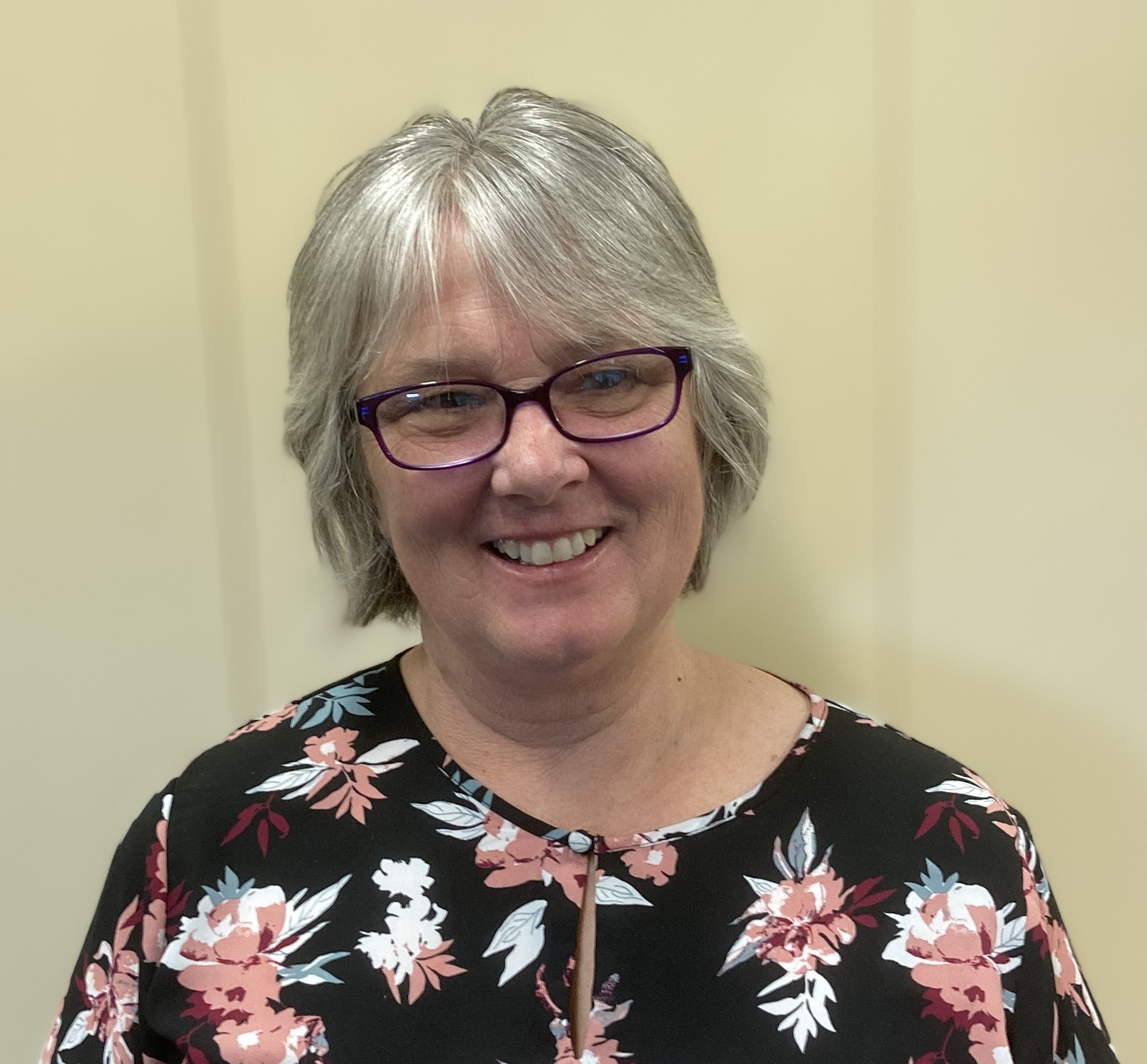“When I first started, we used to say things like: We want students to use the devices but we don’t want them to go out onto the Internet. How can we stop this thing?”
Nicki Davison has been a school librarian at Middleton Grange School in Christchurch, New Zealand for over 12 years. She shares her thoughts on some of the biggest differences in what it was like to be a librarian then – and what it is like now.
Why did you become a librarian?
I was a release teacher for a number of years at a “daughter school” of Middleton Grange School and I was put in charge of the library. I wasn’t a trained librarian, I had no idea how to run a library! But I had some experience working a few shifts in a university library for 10 years and that’s probably why I was put in charge.
We know there are challenges and frustrations that come with being a school librarian today. What keeps you in your job?
You could say I have the best of both worlds because I can teach without the paperwork. I don’t have to report to the Ministry or do my lesson plans because I’m in charge, right? Free reign! But really, what keeps me here are the relationships I have with other teachers, the students and you know, a well-crafted bibliography really gets me excited!
What would be the biggest change you noticed in your role since you started?
I think the main change is in students’ reading behaviour. The way they consume information now, they don’t need to go to books. Some teachers do insist on using books and [reputable] online sources but the kids go straight to the Internet, to Google and Wikipedia. It is a bit scary but that’s my job now, to teach them about fake websites and questionable sources. It’s why we use databases like Britannica, so students have access to good quality information without distractions. Back when I first started, we used to say things like: We want students to use the devices but we don’t want them to go out onto the Internet. How can we stop this thing? Now I think back, I can’t believe how naïve we were.
Also, I can’t quantify it but I have a feeling that literacy is going downhill a little bit. I see a lot of year 11, 12, 13 boys in particular who don’t read well, don’t like reading or can’t get engaged. As librarians we do what we can, but things have definitely changed.
I think the main change is in students’ reading behaviour. The way they consume information now, they don’t need to go to books…[they] go straight to the Internet, to Google and Wikipedia. It is a bit scary but that’s my job now, to teach them about fake websites and questionable sources.
You have a great digital, non-fiction collection at your school. What’s your go-to resource?
My number one destination for digital non-fiction resources is EPIC. We are privileged in New Zealand because with just one username and password we have access to all these amazing databases. And of course with the middle schoolers, Britannica School is where I go first.
Outside of EPIC, the National Library’s Services to Schools also has Topic Explorer and Many Answers, which provide curated resources around a number of topics. So all of those things we can catalogue and link to our database. There’s so much out there but we always try to catalogue anything that is current or topical. The most important thing is constantly reviewing our collection and making updates.
There is great anticipation for growth in digital content but also a lot of uncertainty among librarians. Do you have advice for other school libraries looking to start or grow their digital collections?
First of all, the National Library (of New Zealand) facilitators and the website they put out for us to use is amazing! Then there is our LMS library database; an LMS with a federated search feature really helps with amalgamating resources and making them accessible. The federated search comes in especially handy when we’re searching across Britannica School and other databases.
Would you say a big part of procuring and managing resources for the library is getting teachers and students to use them?
Yes definitely. Coming to this school as the library manager, my focus was to get the kids engaged. Quizzes and games based around a particular resource are a great way to get students learning without knowing they’re learning. For a research database like Britannica School for example, I made some Quick-5 quizzes that tested how quickly and accurately students could track down facts within an article. Kahoots and Digital Escape Rooms take a bit longer to create but are very popular.
Making sure teachers and students know what’s available is also important. I tend to try different things. During our first lockdown, I ran Microsoft streams for a senior History and English class to show them how to access the research materials they needed. They have started using them in class, and no longer need me in person!
Quizzes and games based around a particular resource are a great way to get students learning without knowing they’re learning.
How do you get buy-in from teachers to engage with you and your services?
It can be difficult to start that conversation with teachers. Even after my 12 years, I still haven’t nailed it. But I find it always helps to know what topic each class is learning. For example, if a class is studying or preparing to study “Australia”, I’ll send the teacher some relevant links or tell them I can help. You only need to get through to one person before word of mouth spreads.
I also have a library brochure that lists the things I can do, like teaching research literacy, assisting with reading engagement, accessing our catalogue etc. and hand that out to new teachers or at staff meetings. At the end of the day you just have to stop being shy and say to a teacher: Hey, I heard you’re doing this thing, I can help with resources! Be available but not pushy.
What is your advice for new librarians?
Don’t be shocked at how little some of the students know. Be ready to reteach or restate things many times. Build relationships with your teachers, even if you just create a list of the things you can do for them and email that out at the start of the school year. And finally, remember to show staff how to access their library records!
This article first appeared in Collected, Edition #28, 8 Dec 2021.
More Educator Resources
Sign up with your email for more free resources from Britannica.

